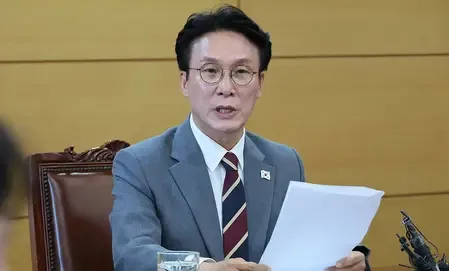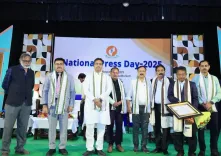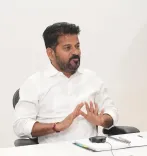Can South Korea and Japan Collaborate to Tackle Changing Trade Orders?

Synopsis
Key Takeaways
- Asian nations must collaborate to effectively respond to shifting trade dynamics.
- Economic slowdowns and geopolitical tensions are key challenges ahead.
- Resuming trilateral FTA negotiations is crucial for regional trade.
- AI and energy transitions are significant factors in the evolving economy.
- Frequent diplomatic meetings can strengthen Korea-Japan relations.
Seoul, Oct 2 (NationPress) Prime Minister Kim Min-seok stated on Thursday that South Korea, Japan, and other Asian nations can collaboratively address the evolving trade landscape amidst extraordinary uncertainties in the global economy.
Kim made this announcement during a forum organized by The Korea Herald, emphasizing the necessity for cooperation among Asian countries, which collectively represent nearly half of the world's GDP.
"In the face of an economic downturn, escalating geopolitical tensions, the reconfiguration of global supply chains, and rapid shifts in trade dynamics, we are indeed experiencing a significant wave," he articulated, also highlighting the challenges posed by artificial intelligence and a substantial energy transition, as reported by Yonhap News Agency.
"We cannot navigate these crises and challenges through the solitary efforts of individual nations," he remarked. "I am confident that Asian countries, including South Korea and Japan, can collaboratively address the multifaceted crises that encompass the changing trade order."
He referred to South Korea's free trade agreements with nations such as China, India, and Vietnam, and noted ongoing FTA negotiations with other Asian countries.
Kim indicated that discussions are in progress to resume negotiations for a trilateral FTA involving South Korea, China, and Japan, while Seoul evaluates its participation in the Comprehensive and Progressive Agreement for Trans-Pacific Partnership (CPTPP).
Regarding the forthcoming Asia-Pacific Economic Cooperation summit set to occur in the southeastern city of Gyeongju on October 31 and November 1, the Prime Minister expressed that South Korea aims to present its future vision for artificial intelligence, ensuring that advanced technologies contribute to global innovation and prosperity.
On September 30, South Korean President Lee Jae Myung engaged in summit discussions with outgoing Japanese Prime Minister Shigeru Ishiba in the southeastern city of Busan, agreeing to collaborate on mutual challenges such as declining birth rates and an aging population.
This meeting followed Lee's recent visit to Tokyo, where he proposed holding their next meeting in South Korea outside of Seoul.
During their third summit, Lee expressed optimism that the two Asian nations could cooperate to tackle shared social issues, such as overconcentration in the capital region, and emphasized the need for their leaders to frequently meet to establish a framework for "shuttle diplomacy."
"I hope the two nations can cultivate a close relationship that transcends social issues to encompass economic and security matters, fostering emotional understanding as well," Lee stated in his opening remarks. "I also aspire for today's summit to lay the groundwork for a new era in Korea-Japan relations."
Ishiba, who announced his resignation earlier this month, reflected on the significance of concluding his final diplomatic effort as Prime Minister with a summit alongside Lee.
"I hope that Korea and Japan can collaborate closely, maintain regular exchanges, and achieve concrete results through shuttle diplomacy," he communicated through a translator.
He further expressed the desire for both countries to share experiences in addressing common challenges, such as population decline, low birth rates, and overconcentration in the capital region, along with low self-sufficiency in agriculture and energy, while suggesting the revival of the bilateral Science and Technology Cooperation Committee.









